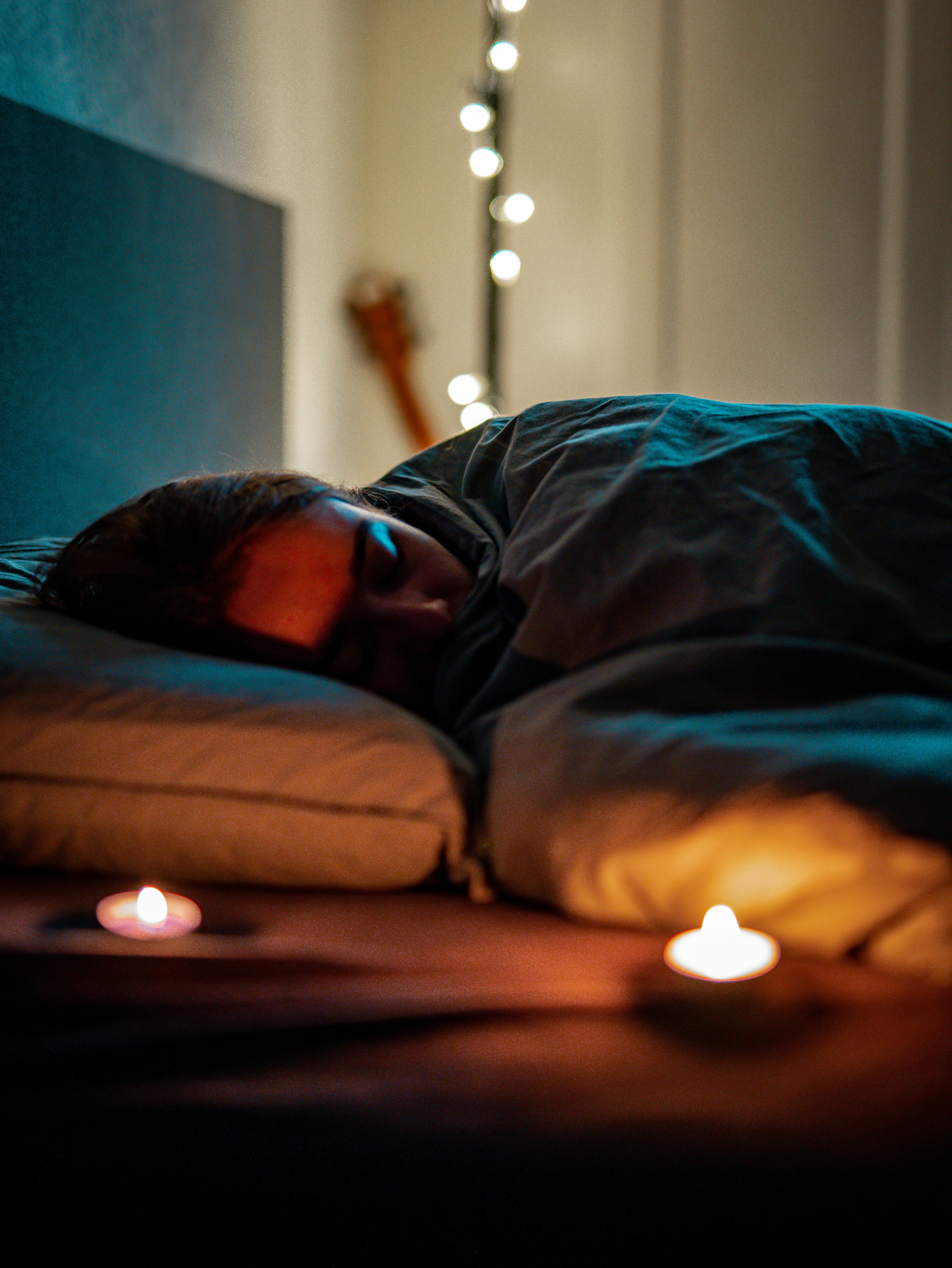A restful night’s sleep is one of the most powerful tools for emotional balance, physical health, and mental clarity. Yet many people struggle with falling asleep or waking up feeling tired. Often, the problem isn’t just what happens in bed — it’s what happens in the hours leading up to it. By building a simple, relaxing nighttime routine, you can train your body and mind to wind down naturally, leading to deeper rest and better mornings.
Why Nighttime Routines Matter
Your body thrives on rhythm. A consistent evening routine signals to your nervous system that the day is ending and it’s safe to relax. Without this cue, your mind may stay stuck in “alert mode,” making it hard to fall asleep or stay asleep. Simple habits done at the same time each night can prepare your body for rest just as effectively as a warm bed or a dark room.
Step 1: Set a Consistent Sleep Schedule
Start by choosing a regular bedtime and wake-up time — even on weekends. This helps regulate your circadian rhythm, making it easier to fall asleep and wake up naturally. The more consistent you are, the more your body learns when it’s time to rest. Try to get 7–9 hours of sleep per night based on your personal needs.
Step 2: Limit Screen Time in the Evening
The blue light from phones, tablets, and TVs suppresses melatonin — the hormone responsible for sleep. Ideally, turn off screens 1 hour before bed. If that’s not possible, use a blue light filter or night mode. Instead of scrolling, spend the last part of your evening reading, journaling, stretching, or listening to calming music.
Step 3: Create a Wind-Down Routine
Choose 2–3 calming activities that help you transition from busy to relaxed. Ideas include:
- Taking a warm shower or bath
- Reading a physical book
- Doing gentle yoga or deep breathing
- Drinking herbal tea like chamomile or lavender
- Practicing gratitude journaling
These rituals signal to your body and brain that it’s time to slow down.
Step 4: Set the Mood in Your Space
Your environment plays a big role in sleep quality. Dim the lights at least an hour before bed to support melatonin production. Keep your bedroom cool, quiet, and clutter-free. You might also use essential oils like lavender or a diffuser to create a peaceful scent that calms the senses.
Step 5: Avoid Heavy Meals and Caffeine Late at Night
Eating too close to bedtime — especially heavy or spicy meals — can disrupt digestion and make it harder to sleep. Try to eat dinner at least 2–3 hours before lying down. Also, limit caffeine after mid-afternoon, as its effects can linger in your system for hours.
Step 6: Reflect and Release the Day
Many people struggle to sleep because their minds are racing. Take time to mentally “close” your day. You can write down your thoughts, to-do list for tomorrow, or anything that’s on your mind. Even 5 minutes of journaling or silent reflection helps release tension and clears your mental space for rest.
Step 7: Practice a Relaxation Technique
Before bed, try breathing exercises or a short meditation to calm your nervous system. Techniques like 4-7-8 breathing, progressive muscle relaxation, or simply focusing on your breath can ease the transition into sleep. You don’t have to be an expert — just a few minutes can make a difference.
Step 8: Keep Technology Out of the Bedroom
If possible, leave your phone and other devices outside the bedroom. The temptation to check messages or scroll late at night can delay sleep and reduce sleep quality. Instead, make your bedroom a dedicated space for rest and intimacy. Use a traditional alarm clock instead of your phone.
Step 9: Use a Sleep Journal (If Needed)
If you often wake up tired or can’t fall asleep, consider keeping a simple sleep journal. Track what time you go to bed, how long it takes to fall asleep, and how you feel in the morning. Over time, you’ll spot patterns and find what’s working or what needs adjusting.
Final Thought: Sleep Is a Ritual of Self-Care
Better sleep isn’t just about going to bed early — it’s about how you prepare for it. A consistent nighttime routine teaches your body and mind to slow down, let go, and enter a state of rest. These habits become a form of self-care, telling yourself: “I deserve to feel rested, calm, and at peace.” Sleep is where your healing happens. Protect it, prioritize it, and build the rituals that honor it.
